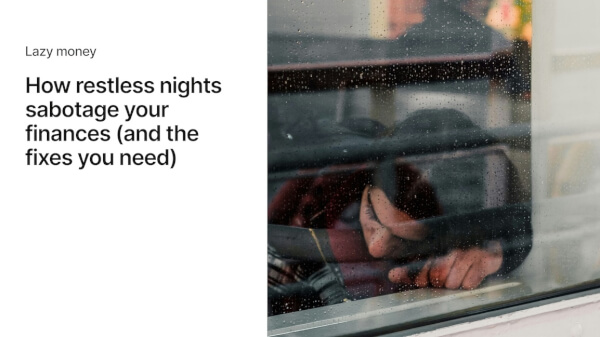Your Christmas Dinner in numbers
Tis the season to eat a lot of yummy food, so Wise has teamed up with the food-and-culture expert and Chef, Mallika Basu as part of our Christmas Without...

Step 1) Book your flight
Step 2) Pack your bag (don’t forget your teddy)
Step 3) Check in online
You’re all sorted…
No you aren’t, you fool. You forgot about mystery Step 4. Meticulously research tipping and money etiquette abroad so you look like you know your stuff. Where’s it rude to tip? Where will you be shunned if you don’t tip? When’s it outrageous to give coins instead of card? Overwhelmed? Don’t be. We’ve got your back…
Tipping began in Tudor, England where servants would receive a few coins as a “thanks for cleaning up the wild boar scraps at my banquette.” Now, it’s evolved and we’ve got different customs around the world. I could easily just list where you should tip and how much you should leave, but that wouldn’t be fun. So I’ve selected the weird, the wonderful and the whacky from across the globe.
By the end of this article you’ll also be an expert in money etiquette and the art of global gift giving. Look at you, you global citizen.
P.s if you feel like taking me on holiday with you as a thank you for this knowledge, I’d be ok with that.
Ok, so I lied. We are going to give you a small look into tipping etiquette. Just so you don’t look like a total plonker when you reach for the bill. A study of 238 across the world looked into where tipping is mandatory and how different cultures come into play when you’re counting your coins.
It turns out tipping isn’t the go-to in nearly half of the world's countries and territories but it isn’t turned down. The global tipping average is about 21% if you’re wanting to play it safe, with leaving extra money behind its most expected in the Americas, Africa, most of Europe and in parts of the Asia-Pacific. But, the best bet is likely within the 10% range, unless you’re in the US.
If you’re having a rough month financially and your bank account is begging you to stop (speaking from experience, sorry Anna’s non-existent pension), then pop off to the 26% of the world where tipping etiquette means not tipping at all… but more on this later.
Now for some fun facts and suggestions.
So, where is tipping a huge no-go?
Japan is a fascinating country. Where sleeping in public or in meetings is a sign of a dedicated hard-worker, where people get paid to shove you into a subway cart and where leaving some money behind for a server isn’t just rude but insulting.
Following good tipping etiquette also means avoiding it entirely in most of China (but not Hong Kong), Kazakhstan, Papa Nugenia and most of the island nations in the South Pacific Ocean. You can tip in New Zealand but it isn’t always expected.
Now for some travel tipping tales from our Wisers:
I couldn’t write a piece about money etiquette without looking at the art of gift giving. Take note if you want to splash the cash on something other than a sad pair of socks or a gift voucher. Family, if you’re reading this, please take the below into consideration for Christmas.
Can’t afford a gift? Fear not. There are also some snippets on how to financially prosper like a local when abroad.
Every Lunar New Year it’s customary to give and receive a beautiful red envelope filled with cash. Gorgeous inside, and out. This is traditionally referred to as Hongbao and is said to bring luck and ward off evil spirits.
Want to be successful? Want to secure money without having to go full Tinder Swindler or work 24 hours a day? Of course you do. In Turkey, folklore recommends going to sleep with a handful of gold so you can manifest a prosperous future.
If you’re hunting down a pretty penny, all you have to do is place your tooth under your pillow when you go to sleep and wait for the Tooth Fairy to do her thing (no peeking). But if you’re in Korea or Haiti, chuck it on the roof. Please don’t ask me why, I don’t have an answer.
In Greece, it's considered bad luck financially to keep your wallet empty or to be gifted a piggy bank with nothing in it. So it's customary to give your child a piggy bank or access to their first bank account with a little bit of cash in it beforehand.
Much like Lunar New Year, the U.K. gives out money on a holiday for the sake of luck. Unlike the Lunar New Year though, it’s only “sixpence” (which technically stopped being made in 1967.) Back in the day, you’d pop a silver sixpence in your Christmas Plum Pudding mix and each member of the family would take a turn stirring it in. Whoever found the coin once the cake was made and served would have a year of money and good luck to look forward to.
Last but not least, we say hello to the pot of gold at the end of a rainbow. In Ireland, folklore states that if you see a rainbow and reach the end of it, you’ll be met with a pot of gold that a cheeky little Leprechaun has placed there. Sure, it technically isn’t possible to reach the end of a rainbow, but let’s ignore that little detail for now.
There we have it, you’re ready to spread your wings and fly free across the world like the global money-giving guru you are.
Now, that’ll be a 12% service charge for this article. Thanks
*Please see terms of use and product availability for your region or visit Wise fees and pricing for the most up to date pricing and fee information.
This publication is provided for general information purposes and does not constitute legal, tax or other professional advice from Wise Payments Limited or its subsidiaries and its affiliates, and it is not intended as a substitute for obtaining advice from a financial advisor or any other professional.
We make no representations, warranties or guarantees, whether expressed or implied, that the content in the publication is accurate, complete or up to date.

Tis the season to eat a lot of yummy food, so Wise has teamed up with the food-and-culture expert and Chef, Mallika Basu as part of our Christmas Without...

Millions of people around the world travel over Christmas, Hanukkah and Kwanzaa. In 2022 alone, 77,000 flights took off on Christmas Day globally. That may...

Salt-N-Pepa the iconic hip hop group = ❤️ love Salt and pepper, AKA the only seasoning I used as a university student = 🥲sigh Taking the Spice Girls advice...

The festive season is upon us, and it’s pretty much the same deal every year: Shop for gifts last minute Eat like a Sumo wrestler in training Travel to see...

We've teamed up with personal finance expert, Kia Commodore to help give your money a kick up the backside so you can go ahead and sleep. “Lazy Money” is what...

We've teamed up with personal finance expert, Kia Commodore to help give your money a kick up the backside so you can go ahead and sleep. “Lazy Money”...